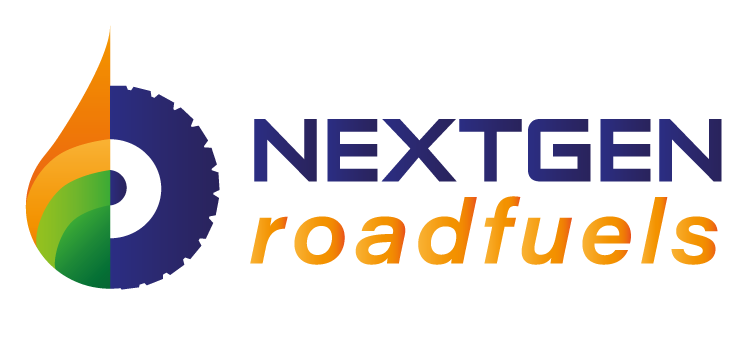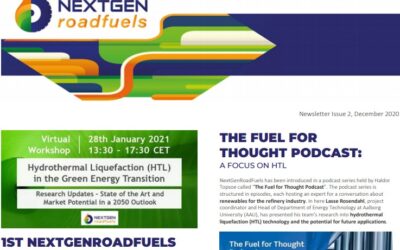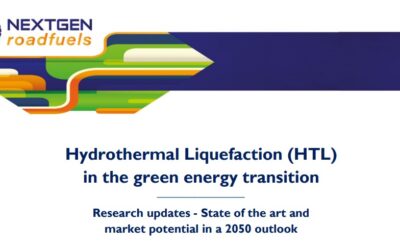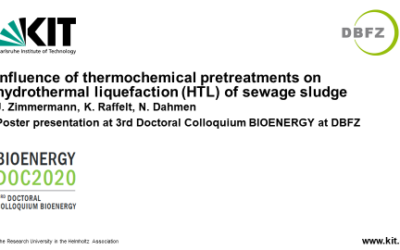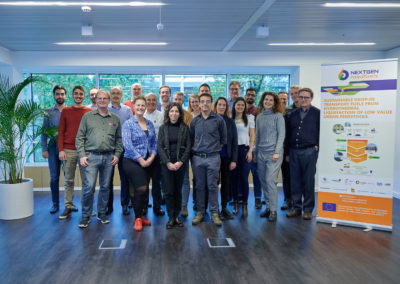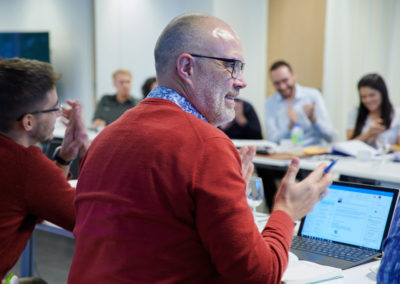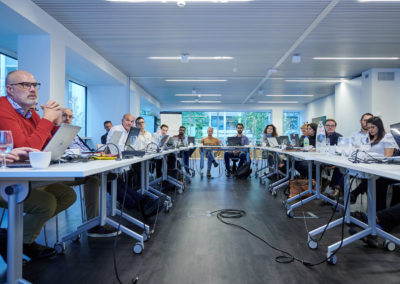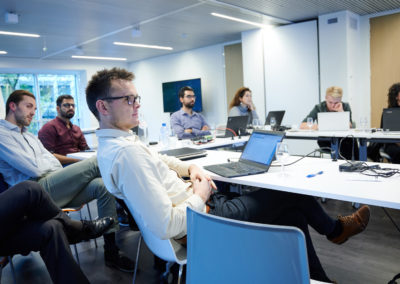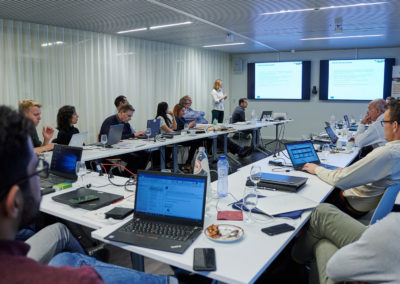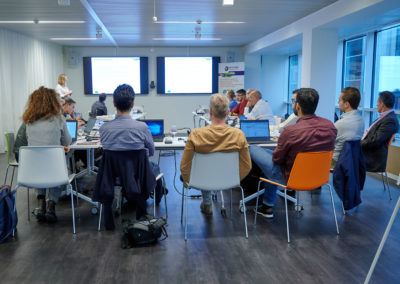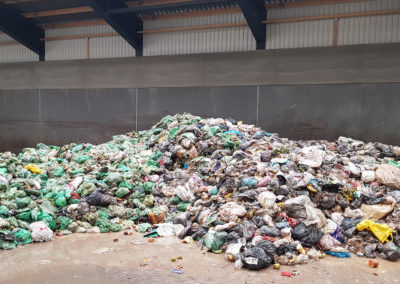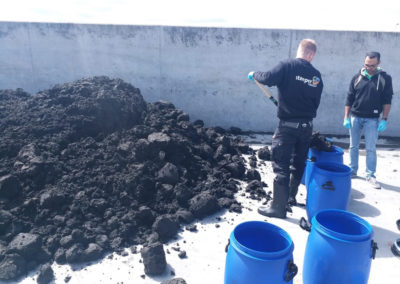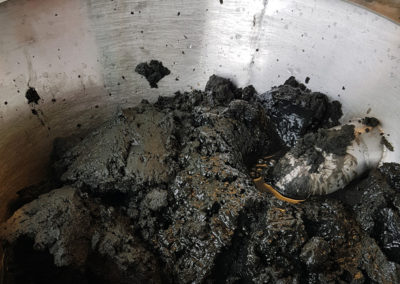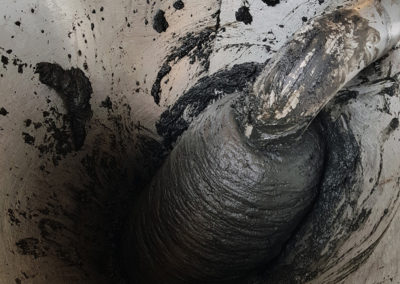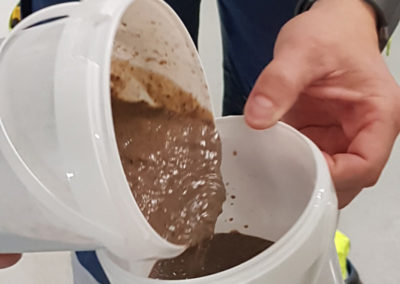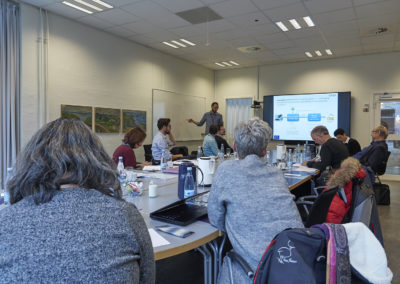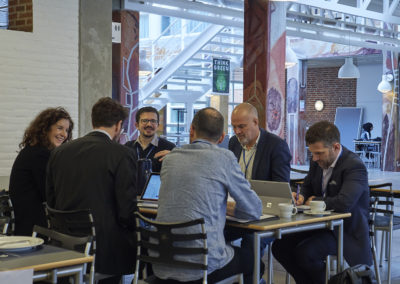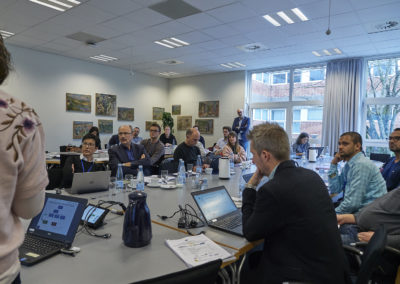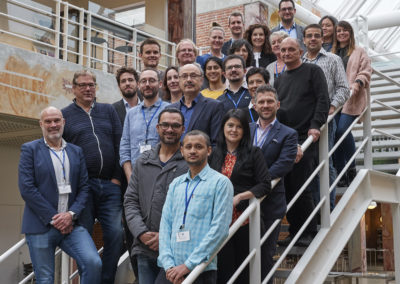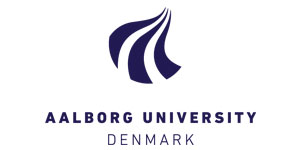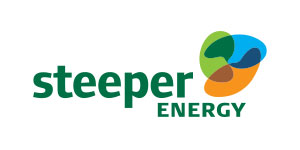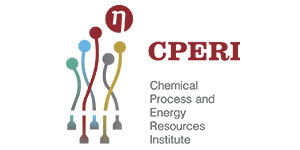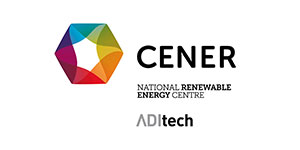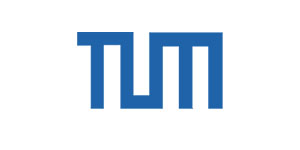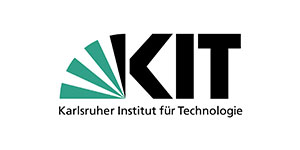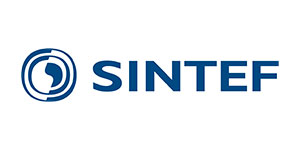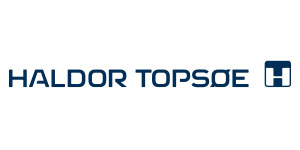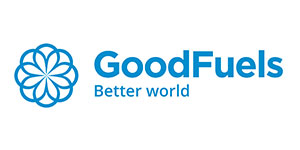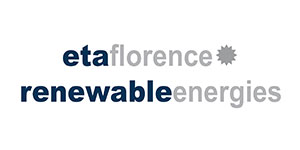NextGenRoadFuels is a Horizon 2020 project to develop a competitive European technology platform for sustainable liquid fuel production.
The project will prove the Hydrothermal Liquefaction pathway (HTL) as an efficient route to produce high-volume, cost-competitive, drop-in synthetic gasoline and diesel fuels, as well as other hydrocarbon compounds.

The project supports the SET-Plan Key Action 8 on renewable fuels and bioenergy, contributing to the renewable-energy-in-transport target and to the GHG emissions reduction objectives, in line with the Renewable Energy Directive (RED II) and the European Energy Roadmap 2050.
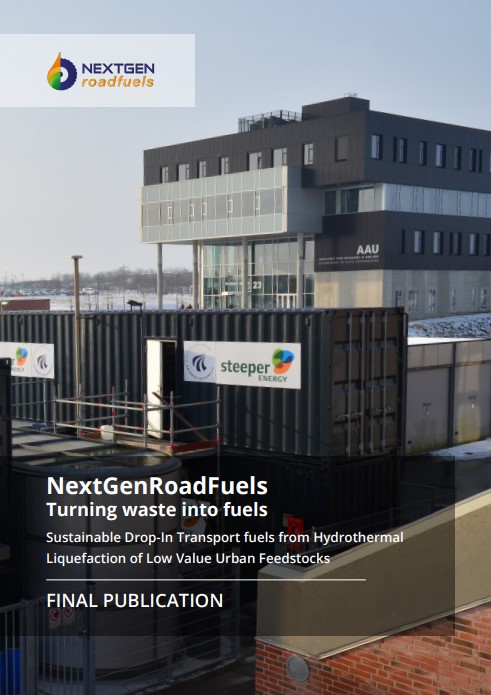
Final Project Publication!
Four years of research and pilot trials carried out by the NextGenRoadFuels project has led to numerous findings in the field of hydrothermal liquefaction (HTL), not only as an efficient route to produce drop-in synthetic fuels, but also as a core technology for urban waste valorisation.
This final project publication summaries and presents the key findings from each aspect of the research:
- Improving the HTL value chain from the start.
- HTL as core technology for urban waste valorisation.
- Turning challenging waste-derived biocrude into fuels.
- The market situation for HTL.
- Environmental assessment, sustainability and economics.
- The future for HTL.
Download the full publication here.
News
NextGenRoadFuels Second Newsletter is online!
The second newsletter of NextGenRodFuels is out know! Read it all to learn more about the latest projects activities, results, events. Download the newsletter by accessing to this link.
Environmental Assessment of HTL in NextGenRoadFuels
A key challenge is to make consumers aware that biofuels will have a positive impact on energy and environment through the valorization of diverse wastes as a feedstock. From one side this prevents
Hydrothermal Liquefaction (HTL) in the green energy transition
The European Commission’s bold ambition to become the first climate neutral continent by 2050 and achieve a 55% reduction in greenhouse gas emissions by 2030 is key for a number
New Special Issue on Processes open for submission
A Special Issue of the international peer-reviewed open access journal Processes (ISSN 2227-9717) is open for submission, with focus on Catalytic Liquefaction Processes of Biomass for Fuels and
KIT presented a poster at the 3rd Doctoral Colloquium BIOENERGY on 18 September 2020
Last 18 September 2020, M.Sc. Joscha Zimmermann (KIT, Institute of Catalysis Research and Technology – IKFT) took part in the 3rd edition of the Doctoral
New video! Decarbonizing Aviation Transport Thanks to NextGenRoadFuels Project
This video in Danish is part of a TV service by DR – Denmark’s Radio (dated 06 July 2020), focused on the potential of sustainable advanced fuels as a
Circular economy approach
The project will develop a cost-effective valorisation pathway for multiple urban waste streams such as sewage sludge, organic waste and construction wood waste.
These streams will be converted into renewable fuels, fertilizers and proteins, thus fostering the urban transition towards a circular economy.
Cost-effective and scalable technology
At the basis of the NextGenRoadFuels process there are different combinations of thermo-catalytic, electro-catalytic and biochemical technologies.
This will permit to have a full scalable process, easy to integrate into existing supply infrastructures, and competitive final costs placing NextGenRoadFuels at the forefront in realising sustainable transport biofuels.
Flexible model
The consortium will use available state-of-the-art pilot facilities in 2 main scenarios:
- a standalone model where a full production pathway from urban feedstock to drop-in fuels can be managed at a central facility;
- a hub-and-spoke model, with several HTL plants close to the sources of feedstock and serving a single upgrading facility.
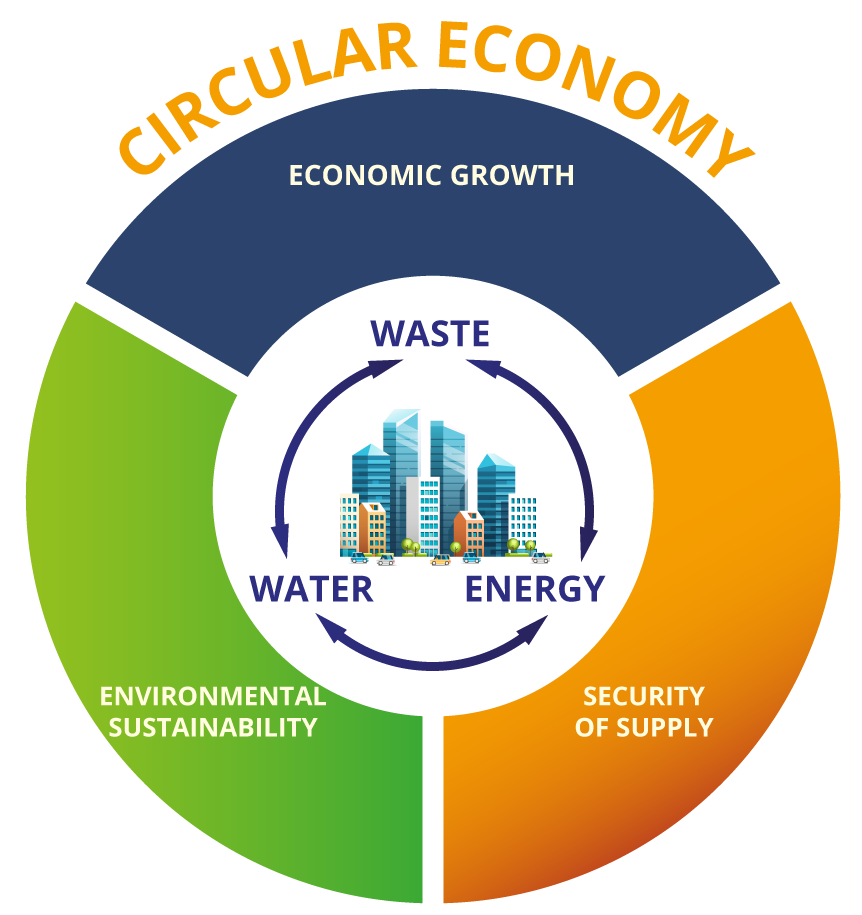
Activities
Collection
Upgrading
Market
Pre-treatment
LCA
Business strategies
HTL
Integrated assessment
Knowledge sharing
Stay updated
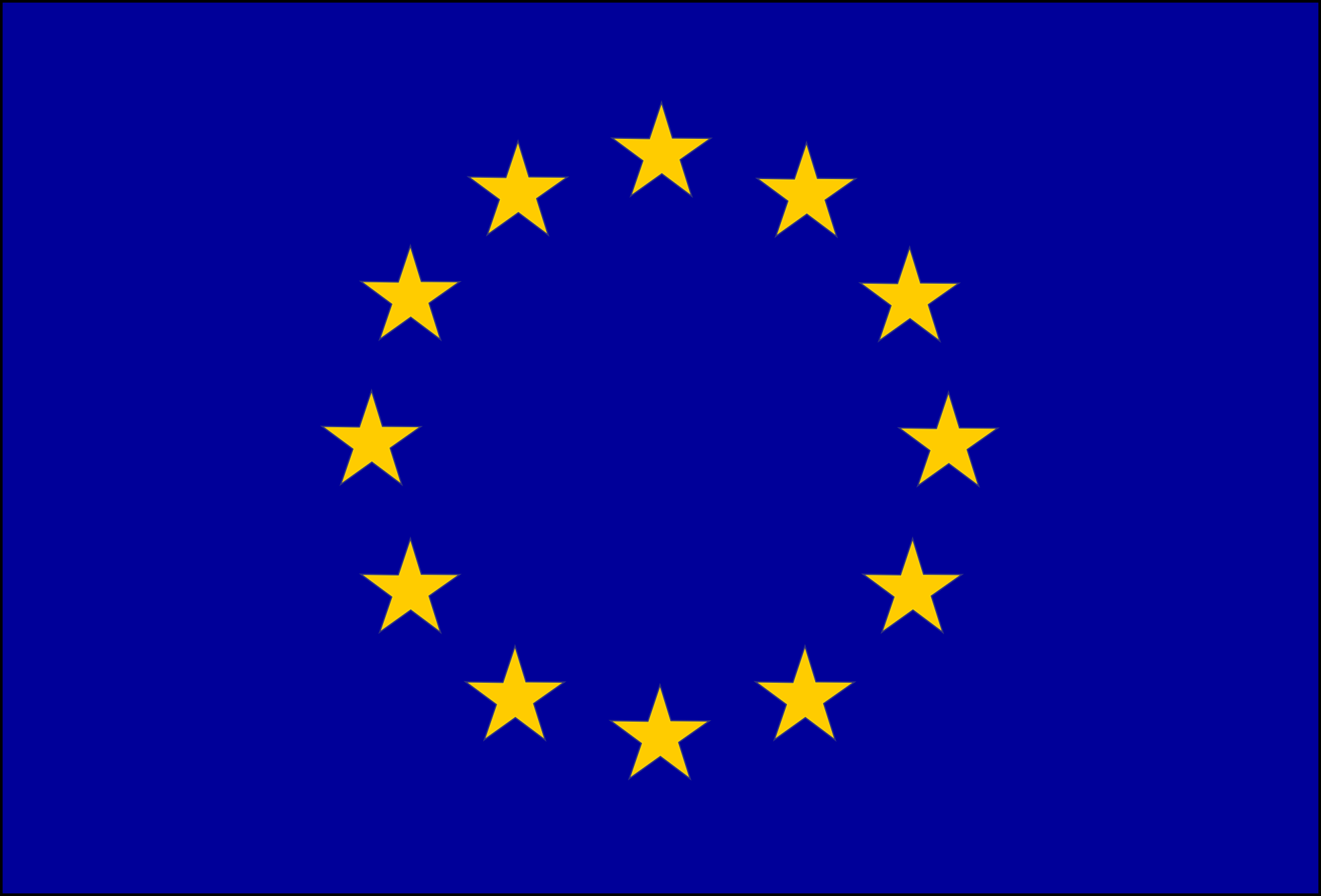
This project has received funding from the European Union’s Horizon 2020
Research and Innovation Programme under Grant Agreement No. 818413
